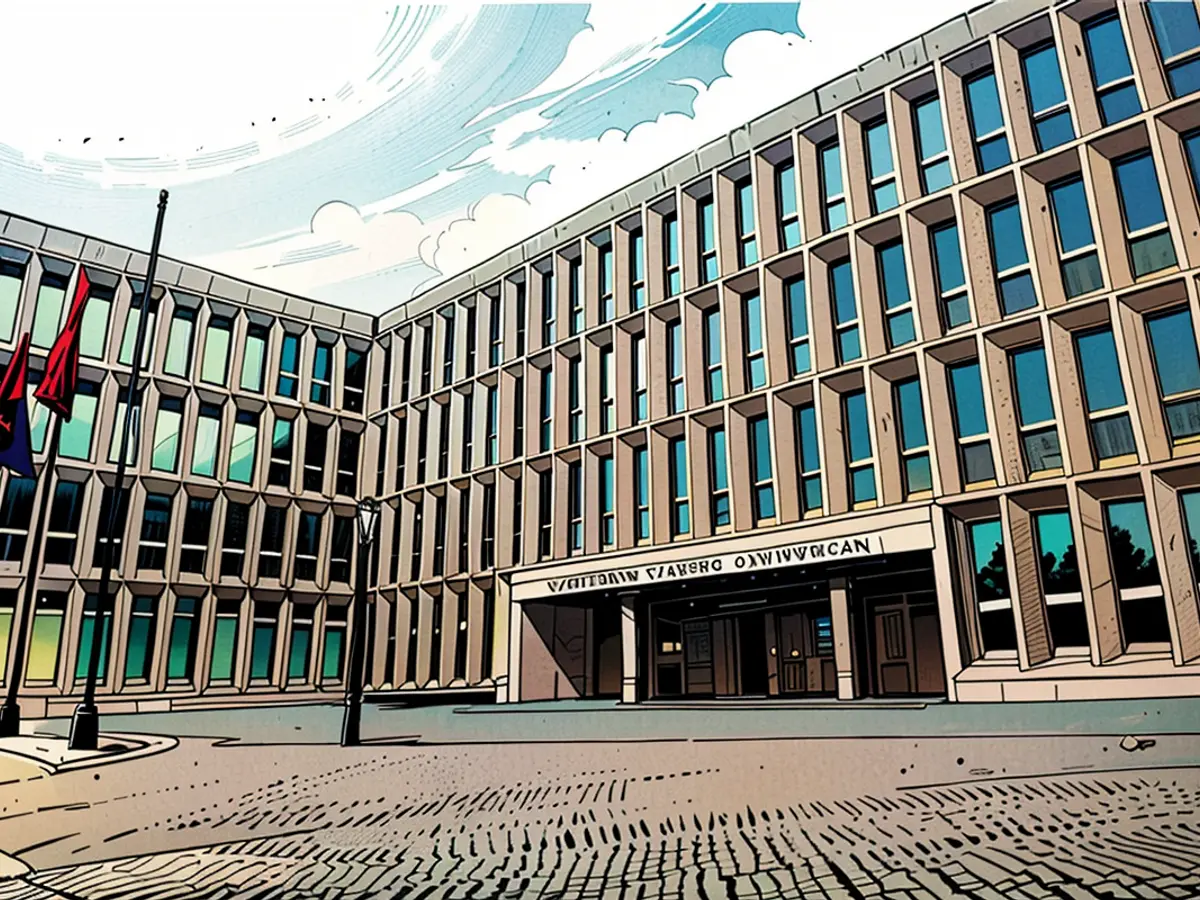- The European Union is dedicated to executing the provisions of the Paris Agreement.
Demands Echo from the Union at Migration Talks
Strong urgings are emerging from the Union at the coalition's migration meeting, involving the traffic light alliance, the government, and the federal states - yet the government cautions against excessive optimism. "I'd suggest holding back and not setting high expectations prematurely," said Deputy Spokeswoman Christiane Hoffmann in Berlin.
Union's Input
CDU's leader Friedrich Merz may not be attending, but he echoed calls for a substantial decrease in immigration to Germany the day prior. According to Merz, it's not the gun laws or deportations that are the primary problem. "The true predicament is still the relentless pressure of uncontrolled immigration," he stated. Merz insisted on border rejections. "If there's no agreement tomorrow, there's no need for further talks," he asserted in Osnabrück on Monday evening.
Hesse's head of government and chair of the conference of ministers, Boris Rhein (CDU), called for a "shift in migration policy" weeks prior. On Monday, he recited the Union's demands again: "The federal government must fortify border controls and insistently reject at the borders. We must also enforce consistent implementation of the Dublin rules at the European level, more secure countries of origin, asylum procedures in third countries. It's possible to deport to Afghanistan and Syria. Felons and dangerous individuals should lose their citizenship, and deportation and detention options should be broadened."
Even BSW chairwoman Sahra Wagenknecht endorsed a firm stance on immigration matters. "Instead of sham solutions, we need the political end of uncontrolled immigration," she told the 'World'. "Those already in the country but turned down should lose their entitlement to support." Even those entering from a safe third country can't claim asylum and aren't entitled to benefits funded by taxpayers.
Contributions from the Traffic Light Coalition
From the perspective of the federal government, the foundation for conversation is the "security package" passed last week – a response to the knife attack in Solingen resulting in three fatalities. It incorporates measures in three areas: a stricter approach towards the repatriation of rejected asylum seekers to their homelands, enhanced combat against Islamic terrorism, and tightening of the gun control legislation.
Among other changes, asylum-seekers whose responsibility lies with another European country will no longer receive benefits in Germany, provided that country agrees to receive them (Dublin cases). A ban on switchblades and easier exclusion from German protection for migrants convicted of a crime are also planned.
A joint working group of the federal government and states will explore potential solutions to enhance the Dublin procedure – i.e., the guidelines for deporting asylum seekers to European countries responsible for them. This pertained to the suspected attacker in Solingen, who should have been deported to Bulgaria.
Cautions from the Migration Commissioner
The federal government's migration commissioner, Reem Alabali-Radovan, advised against an "exclusive emphasis on stiffening migration policy." According to the SPD politician, the "security package" should strengthen protection against terror, violence, and crime – without general suspicion or blanket judgments.
Migration and internal security predominantly fall under state jurisdiction. While the Federal Office for Migration and Refugees (Bamf) handles asylum applications, the immigration offices are state agencies. Ultimately, deportations are a state responsibility, though they can seek help from the Federal Police in their execution.
The government has outlined improved cooperation between federal and state governments in its security package. A joint working group of the federal and state governments will explore methods to advance the Dublin procedure – the guidelines for deporting asylum seekers to responsible European states. This pertained to the suspected attacker in Solingen, who should have been deported to Bulgaria.
Planned confidential meeting
The migration meeting at the Federal Ministry of the Interior is expected to include representatives such as Interior Minister Nancy Faeser (SPD), Justice Minister Marco Buschmann (FDP), and Foreign Minister Annalena Baerbock (Greens) for the federal government. Representatives from the traffic light factions are also anticipated. For the Union faction, Fraktion Business Manager Thorsten Frei (CDU) is scheduled to attend. Hesse will represent the Union side, while Lower Saxony will attend for the SPD side on behalf of the states.
The government has elected to remain silent after the discussion. A private meeting is scheduled.
- Despite the Union's persistent calls for stronger border controls and the rejection of asylum seekers at the borders, as advocated by Union leaders like Friedrich Merz and Boris Rhein, the federal government cautions against setting overly optimistic expectations.
- Contrasting the views of the Union, the federal government's migration commissioner, Reem Alabali-Radovan, advocates for a balanced approach, emphasizing the necessity of strengthening protection against terror, violence, and crime without general suspicion or blanket judgments.








